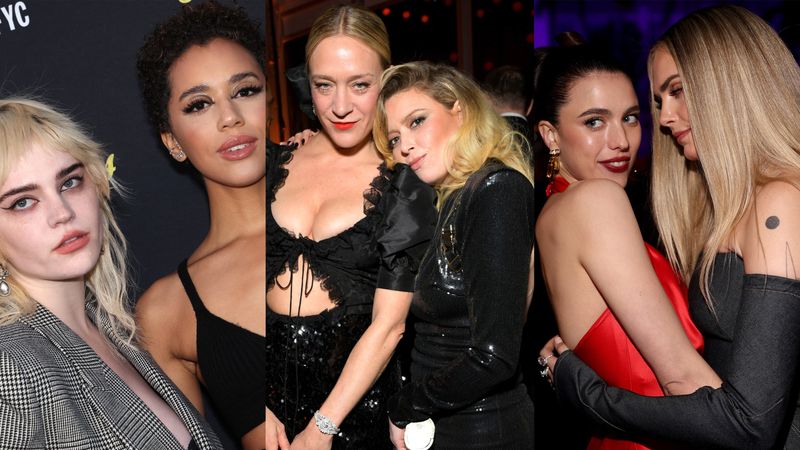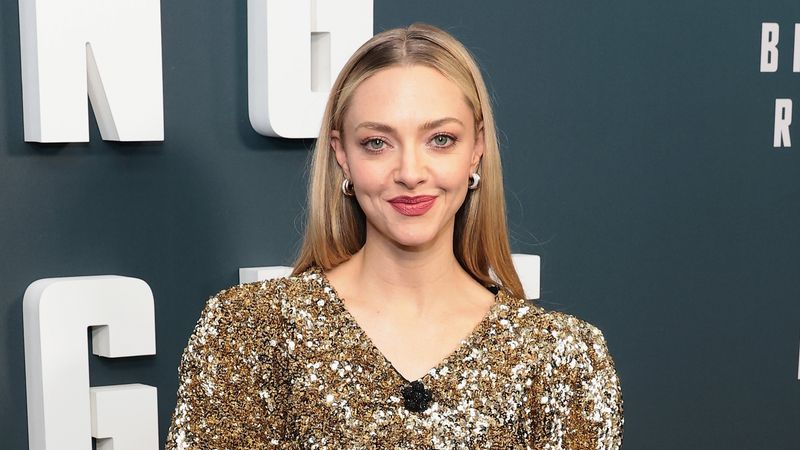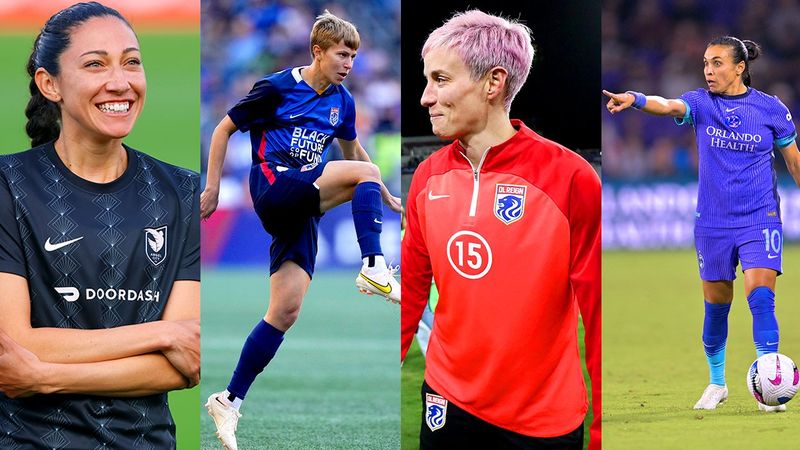It's no secret that estranged ex-spouses of LGBT people often challenge parental custody rights in divorce proceedings, alleging that one parent's homosexuality (or gender identity) makes them unfit to raise the child they helped create. But how extreme is this bias? If the heterosexual parent was, say, a convicted murderer — would that be reason enough to believe a child would be better served by a lesbian mother?
Not according to a Florida judge in 1995, in the case of Ward v. Ward. The stunning case is recounted in a compelling new documentary currently burning up the film festival circuit. Directed by out filmmaker Edwin Scharlau III, Unfit: Ward v. Ward tells the true story of how a simple request for a modest increase in child support resulted in a mother losing custody of her daughter to the child's father, who was not only uninvolved in his daughter's life but on his fourth marriage — after he was convicted of and served jail time for murdering his first wife in cold blood.
Unfit has garnered wide acclaim across the festival circuit, winning Best Documentary awards at the Miami Gay and Lesbian Film Festival, where it premiered April 30, the CKNY Scene LGBT Film Festival in Cincinnati, and the Boston LGBT Film Festival. Unfit: Ward v. Ward has been named the official selection for more than 25 LGBT and mainstream regional film festivals around the country.
Trending Stories
In an exclusive conversation with Scharlau, 42, and out executive producer Katie Carmichael, 54, the filmmakers let our readers in on why they wanted to tell this story now, what they hope will come from it, and how things have — or haven't — changed for LGBT parents in the two decades since Mary Ward lost custody of her daughter Cassey to her murderer ex-husband.
What inspired you to tell this story now, when the case took place nearly 20 years ago?
Katie Carmichael: In March of 2009 I was at a National Center for Lesbian Rights fund-raiser where Kate Kendell was speaking about some of the cases that she had been involved with. … When she started talking about Mary Ward, I kept asking her questions because it affected me on a very deep level. I instantly felt drawn in by this injustice. The Internet provided a lot of material, so by the time I contacted Kate I had a lot of questions, but the most important question I had was: Was Mary a good mother? Kate's immediate response was that she was devoted to her children — and that Kate would have allowed Mary to take care of her own children. Personally, that was all I needed to know.
We live in Florida — a state that just legalized adoption for gay couples. Not that much has changed for us. If Romney is elected, we could all be forced back in the closet. I truly believe that.
Edwin Scharlau: We were looking for something to work on at the time and this just seemed like the right story and the right time. Also, I feel like we tend to think that so much has changed in the last 15-20 years — and I think with respect to LGBT visibility it definitely has — but I also feel that visibility has come with a price and that antigay sentiment has risen recently. And when it comes down to it, this wasn’t that long ago. There are a lot of misconceptions out there about how far we’ve come. I am amazed at how many people are completely shocked when I tell them about this case, because they feel that even 15 years ago this couldn’t have happened.
Why were each of you interested in this story on a personal level?
Carmichael: My own mother died when I was 13, and I can tell you that it hurts as much today as it did in 1971. So I could relate to all of [Mary's] children's pain. This should never have happened to this family.
Scharlau: I was interested in this story not just as a gay and lesbian story but as a human rights story. When it comes down to it, this is a story about a mother and a daughter. If we let judges bring their preconceived notions and prejudices into a courtroom, this could literally happen to anyone.
More on next page...
\\\
(continued)
Do you feel that times — and the legal atmosphere — have changed when it comes to gay parents in custody battles today?
Scharlau: Yes and no. I think that gay and lesbian parents have definitely seen advances in recent years, and in many places there are laws in place that would make the outcome of this case different. Yet in many states that is not the case. I live in a state where until recently it was illegal for gays and lesbians to adopt. Other states have either established or are looking to establish similar constitutional amendments. We like to think that something like this couldn’t happen today, but I was surprised during the process of making this documentary by how many people came forward and shared their stories with me of similar situations that they are currently going through.
With regards to LGBT equality in general, I truly believe with all the mainstream visibility the LGBT community has recently experienced, there has been a backlash. And in some ways, I feel things are getting worse as the issues become more front and center. In our documentary, Susan Walch — a professor who specifically studies homophobia in the Florida panhandle — made a very interesting observation when she said, "A lot of people think we’ve come a long way in terms of tolerance for gay and lesbian individuals, that historically speaking levels of homophobia were much higher than they are now, and the reality is that surveys and polls that have been done over time don’t really support that claim. What makes our society homophobic? They still see homosexuality as abhorrent, abnormal, sinful, disgusting, and all of those kinds of negative evaluations."
Carmichael: I still think it is a slippery slope for us out there on every front. We have made progress, but not enough. Why are we having this discussion in 2012?
Cassey Ward and her sister Carla Janes in happier times
What do you hope audiences will take away from this film?
Carmichael: I hope the audience walks away mad — so mad that it makes them stand up and be proud of who they are and who they love. My partner and I were denied a marriage license last year in New York by a small-minded town clerk, and after spending so much time working on this documentary, I was livid by her actions and immediately went to People for the American Way, who helped us get the story out. I was not going to be denied my civil rights.
Scharlau: I hope that audiences will have a better understanding of how the family court system does and does not work — that they can see it can be terribly flawed. A family judge has great leeway in their decisions when they say that something is in the best interest of the child — they can bring all their prejudices, preconceived notions, and feelings to the courtroom.
And I really hope that the film makes people mad and that they can take that anger and do something positive. If this film can make a handful of people get more involved in the community, in assuring that all people are treated with dignity and respect and all have the same rights and privileges, then I would be more than satisfied.
Unfit: Ward v. Ward has been accepted into more than 30 film festivals across the country, both LGBT-specific and general festivals. The film is next scheduled to screen at the Mississippi International Film Festival in Jackson and at the Mount Hood Independent Film Festival in Hood River, Ore., on Saturday. For a full list of upcoming screenings, click here. The film was produced by FOMO Films, started by Scharlau and Carmichael as a vehicle to develop socially conscious projects and films.
Carmichael and Scharlau are currently drafting a screenplay about Mary Ward's life. Both filmmakers live in Miami Beach, Fla. Carmichael and her wife have been together for 10 years, and Scharlau and his partner have been together for nine years. In 2007 the couple had their union blessed by their church, since Florida does not permit legal same-sex marriage.
For more information on the film, click here.





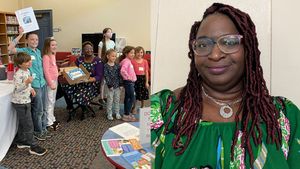

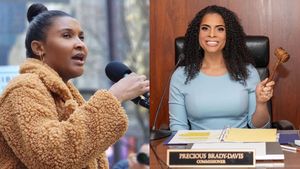


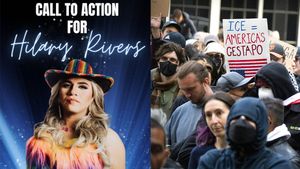




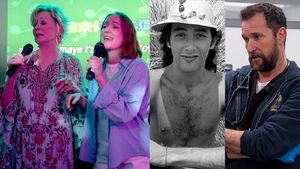





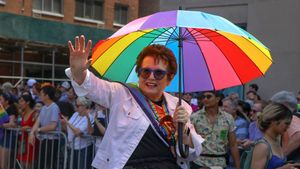



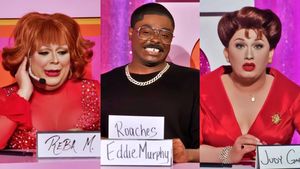


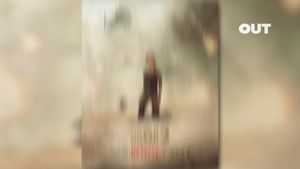

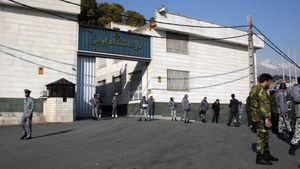




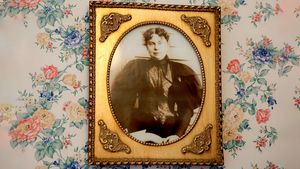




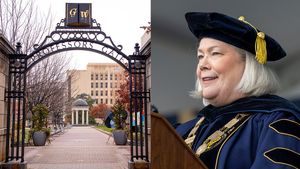

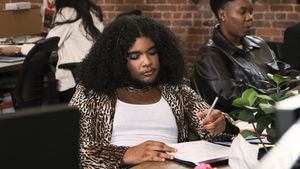




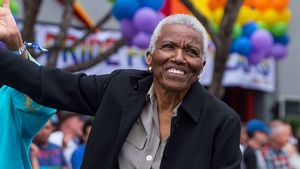
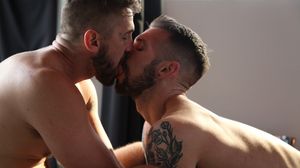






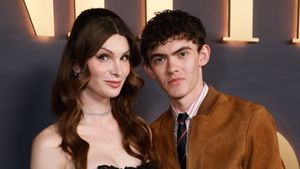




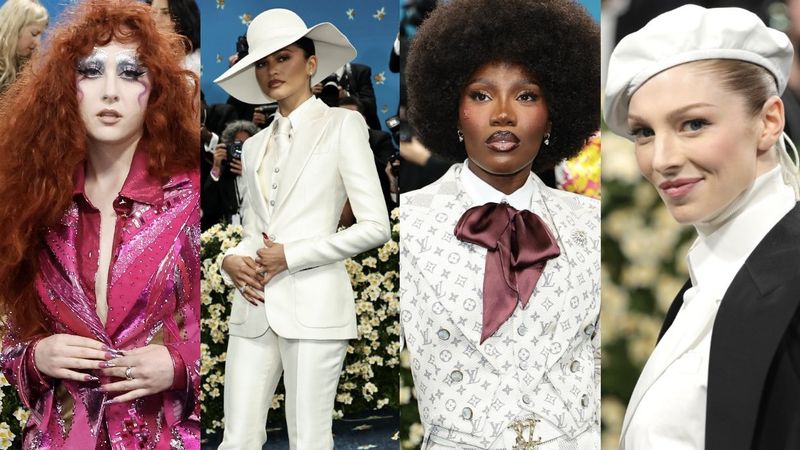



































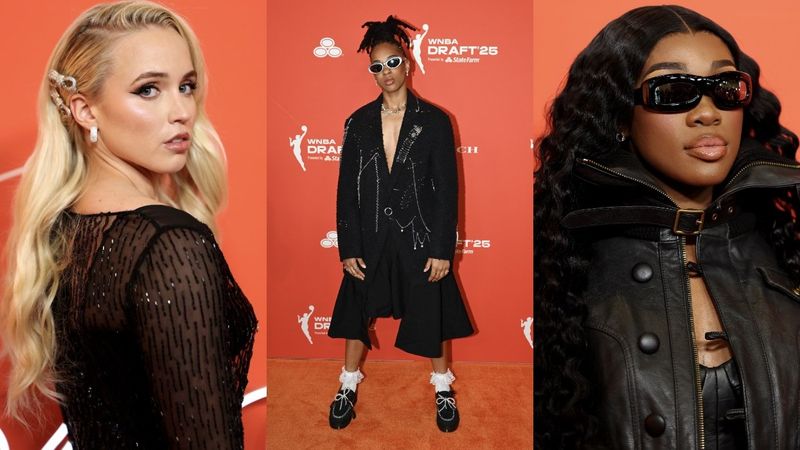
 Cindy Ord/Getty Images
Cindy Ord/Getty Images










